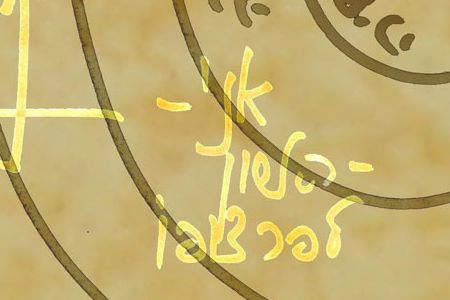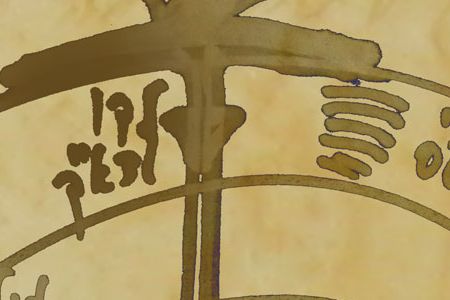Exodus, 25:1-27:19
This Week’s Torah Portion | January 26 – February 1, 2014 – Shevat 25 – Adar 1, 5774
In A Nutshell
The portion, Teruma (Donation), deals primarily with the building of the tabernacle. The Creator instructs Moses to tell the children of Israel, “And they shall take for Me a donation from every man whose heart moves him you shall take My donation” (Exodus, 25:2). The donations were intended for the building of the tabernacle and its tools—the ark of the covenant, the ark-cover, the showbread table, the Menorah (lamp), the boards of the tabernacle, the sockets, the veil, the copper altar, and the hangings of the court. The Creator also tells Moses how to build the tabernacle. The portion is called Teruma (donation) because of the commandment to donate.

Commentary by Dr. Michael Laitman
All we have is the building of the tabernacle. This is where the Creator is revealed, and this is where He resides. We must build it through a donation, and by raising the importance of the quality of bestowal and love of others (in Hebrew, the word Teruma (donation) also pertains to Harama (raising), as in, “raising the Hey”)[1]. The more we extol the quality of bestowal and use it properly, the more we correct our Kelim (vessels), namely our desires, which we currently use for ourselves, as it is written, “I have created the evil inclination…”[2]
The building of the tabernacle explains the process of our correction from the easiest to the hardest as we gradually build the tabernacle from our lightest, to our heaviest, greatest, and most egoistic desires.
The donation to the tabernacle must come from the heart, which contains all the desires. Only one who is driven by impulse in the heart is permitted to offer a donation, and from this “investment” one builds one’s Kelim. The Kelim are the connections between us, which establish the tabernacle. In the tabernacle appears the upper force, the Creator, according to one’s equivalence of form. That is, we discover the Creator to the extent of our similarity to Him.
The Creator is a hidden force. We are not inherently born with tools to discover Him because we do not possess qualities that are similar to His. For example, we hear sounds because our eardrums react to certain frequencies. Likewise, we can tell different smells because we have olfactory neurons that detect them. These are our Kelim (in Hebrew, Kelim means both “vessels” but also “tools”). However, we are devoid of tools to “detect” the upper force, the Creator, the source of energy.
Continue reading “Teruma (Donation) Parsha – Weekly Torah Portion”


